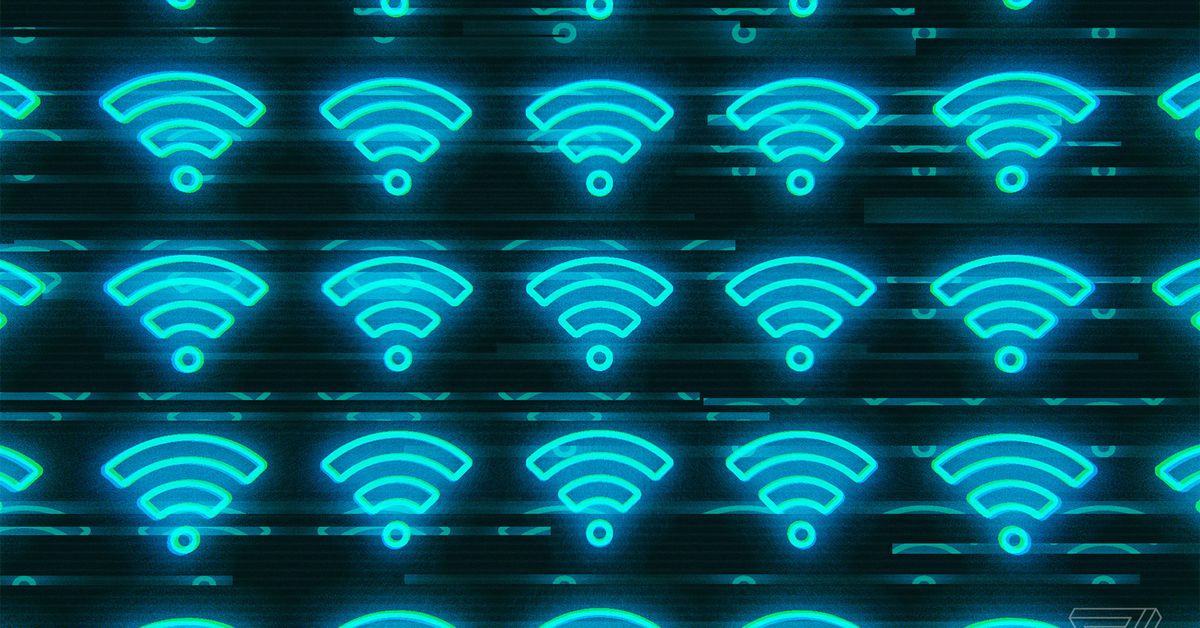- cross-posted to:
- [email protected]
- cross-posted to:
- [email protected]
The FCC can now punish telecom providers for charging customers more for less::The Federal Communications Commission has passed new digital discrimination rules that hold telecom providers accountable for not providing equal internet access.
I currently pay $45/mo for 75/20 DSL over 1960s copper. 3 streets over, they’re paying $45/mo for 300/300 fiber from the same ISP. You tellin’ me the FCC can punish them for that?
That bothers you so much then contact the FCC and tell them how unfairly you’re being treated with your internet service provider
I’m probably also paying 2x what a new customer is paying because I’m too lazy to switch or threaten cancellation. It’s a bait and switch as far as I’m concerned. Introductory pricing needs to go. Sign-up bonuses (that don’t lead to increased costs down the road) are fine, but none of this 12-month rate lock bullshit. You shouldn’t have to call up anyone (and literally, you can’t do a lot of this stuff except on the phone) to say please don’t charge me more.
I’m paying $115mo for whatever the cable crossing a nearby interstate can offer my small neighborhood. I’ve been told by a frustrated service worker that until Xfinity is willing to replace the lines our service will continue to fluctuate. Most of the time it’s just ok, but we have spikes of great connection or barely connected. This effects the whole neighborhood, but many are older residents who I might guess rely on the Internet less.
Sounds like your situation is the perfect place to apply this.
I’d love to have either of those TBH. And I live in a relatively large city.
Wtf why not just break the monopoly these companies have?
It’s the same effect but better
Because the bigger problem is ownership of the infrastructure. Monopoly or not, one of the companies owns the line
So make it a public utility perhaps considering it’s so critical these days
Because the bigger problem is ownership of the infrastructure. Monopoly or not, one of the companies owns the line
Someone doesn’t understand what eminent domain is. Sad.
Even better, those cables were supposed to be replaced by the companies that own it using money from the government. Since they didn’t do that, might as well take the cables and money back and make it a public utility.
We paid for them to upgrade that infrastructure to the tune of several billion, and those companies just lined their pockets instead. Fuck ‘em. We practically bought it at this point. That shit is basically ours.
Well there is precedent to that. When the us government allowed At&t to dominate the internet markt and then followed it by a huge court case against them until eventually the CEO of AT&T eventually agreed to the division of the company in smaller regional ares of operations.
So they centralised it and then forced them to divide. If we are basically there already then just let them merge so you can prosecute them
The FCC under Biden has a long term plan to reclassify the internet under Title II, which would allow much stricter and wider ranging regulations.
They are probably trying to get that pushed through first.
More work maybe?
edit:2 words
Seems like a positive, good on FCC.
Seems to not be a race problem, it is more on working class vs. wealthy class problem.
Wealthier neigborhoods vs. working class neigborhoods.
Interesting news to follow, can’t wait for independent yters and the like to start commenting on this.
Seems to not be a race problem, it is more on working class vs. wealthy class problem.
Those are interlinked, though. Due to centuries of institutionalised racism and related inequities, people of color are extremely overrepresented amongst the poor. As a result, what hurts the poor in general hurts more people of color than white people.
Yes, but the racism is a smaller portion of the overall problem so labeling it as race discrimination narrows it. While it transitively is racist, labeling it as such narrows it to only a portion of the problem. It’s unlikely the execs of the companies are saying “let’s charge white people less”, they’re doing it by area and income. If that unintentionally becomes racist, going after them for racism won’t get anywhere.
If two people in neighboring communities are paying drastically differently for the same service, but they’re both the same race, there’s still a problem but it’s not racist.
We should be trying to just give all Americans equivalent internet options, regardless of race. The race part is just one piece of the overall problem and the outcome of of a different problem.
I get what you’re saying and I partially agree, but here’s how I see it:
Class struggle is race struggle and vice versa. You can’t help or hurt all poor people without helping or hurting a lot of people of color and anyone who’s paying attention knows that.
Why does that matter, you may ask? Because, while the false notion that systemic economic inequality is the fault of impoverished individuals more than the system and those in charge of it is still widely believed, holding the same notions about racial inequality is deservedly regarded as abhorrent.
The rich and powerful disproportionately abusing the working poor doesn’t inspire anywhere near as much righteous indignation as them disproportionately abusing people of color, even though the actions themselves are identical.
Regardless of intention, racist outcomes are a stronger argument for systemic change than anti-worker outcomes when it comes to countries like the US where regulatory capture and demagoguery favoring money and power over humanity IS the system.
Class struggle is race struggle and vice versa. You can’t help or hurt all poor people without helping or hurting a lot of people of color and anyone who’s paying attention knows that.
Yes, totally agree.
The rich and powerful disproportionately abusing the working poor doesn’t inspire anywhere near as much righteous indignation as them disproportionately abusing people of color, even though the actions themselves are identical.
While I agree, I think this is where we differ. I don’t think we should then just limit our “fighting back” as being about race. I won’t be satisfied by this bill if all it does is makes sure that ISPs fuck over people in certain areas, but do it equally across races. ISPs could fuck white people harder so then it’s not a race problem. Or they could fuck people of color slightly less, but still have drastically different pricing in Kentucky than in California. At that point race is no longer a real argument, but the class war continues and the problem still exists.
I just don’t think we should reduce the arguments to an argument of race. While that may fire people up more in the current climate, it’s narrowing the issue.
even though the actions themselves are identical.
If that’s the case, than we can fight this as a class war and still solve the other issue. The underlying issue is class and financial fleecing, which is itself also racist, but solving the race problem doesn’t solve the whole issue. People need to see this for what it is to solve it, and “distracting” away from the core of the issue makes it harder to solve.
Why not both?
Why not both?
That’s what I’m trying to say: it IS about both, so it behoves us to focus on both rather than completely ignore the racial aspects in favor of a less comprehensive strategy of only mentioning the aspects that are least likely to garner headlines and wide public support.
I’m no fan of demagoguery, but when the TRUTH is an effective argument bound to illicit the kind of emotional reaction necessary to make any headway in a broken media and political system, you don’t just discard the most effective argument.
That’s what I’m trying to say: it IS about both
I don’t think your argument comes off that way, but i guess that’s subjective.
The original article outlines how they’re pushing a bill to stop discriminatory pricing. That lower income areas and areas with fewer white people tend to have less tech / higher price. It then goes on with multiple quotes about race. And how people of color don’t have the same access.
The original comment says they don’t think it’s just race, that it’s a larger class issue.
You then start talking about how it IS race and is racist.
We know. The original article posed that angle. The comment you responded to said it was a broader problem. Youre coming back around to the race thing again, which sounds a lot like you’re saying the race thing is a bigger deal or something.
Again, the article outlined both and hammered on race. The commentor says it’s also a class issue. You then come back “disagreeing” which doesn’t sound like you think it’s both. Like I said, it sounds like you’re trying to re-narrow the argument.
TL;DR: Intersectionality is a thing and forcing the separation of intertwined issues is counterproductive as well as unjust.
I have consistently said that it’s both from the start. In fact, the original statement I took issue with was this:
Seems to not be a race problem, it is more on working class vs. wealthy class problem
My argument was and still is that it’s both and that ignoring the race component by pretending that it’s ONLY a class issue is both misleading and bad strategy.
Such bad strategy, in fact, that it was probably the biggest reason within the campaign’s control that Bernie Sanders didn’t become president in stead of Trump. His economic policies would have helped everyone except for billionaires and abusive anti-labor corporations, but he and the rest of the campaign didn’t make it clear enough to the black and brown voters in the South that economic justice is racial justice and vice versa.
It’s interesting. I live in a tiny working class city that is run down. But we have gigabit fiber. I’m not sure what caused that.
Your assessment is much more common. Mine is an outlier.
@L4s so does this mean I can no longer threaten to cancel my service and get an offer to pay 50% for 2x the speed? There might be an element of agism or elder abuse happening here too. When I check on what my parents pay for internet, they will just keep paying the marked up cost for slow service. They end up paying 2-3x more than someone who calls for new service and for a plan so slow the provider no longer offers it.
You can only threaten to cancel if there’s an alternative. I tried this and they were like: okay man, just be forewarned that there’s a connection fee when you come back.
They were right, it was more $ to follow through with my threat and they knew it.
This Democrat Majority FCC is INFRINGING on my Freedoms to pay whatever the Telecom Provider wants to charge me!
This is the best summary I could come up with:
Under the new rules, the FCC can fine telecom companies for not providing equal connectivity to different communities “without adequate justification,” such as financial or technical challenges of building out service in a particular area.
Last year, a joint report from The Markup and the Associated Press found that AT&T, Verizon, and other internet service providers offer different speeds depending on the neighborhood in cities throughout the US.
The report revealed neighborhoods with lower incomes and fewer white people get stuck with slower internet while still having to pay the same price as those with faster speeds.
At the time, USTelecom, an organization that represents major telecom providers, blamed the higher price on having to maintain older equipment in certain communities.
“There is mounting evidence that low-income families and people of color are more likely to live in monopoly service areas that have just one high-speed internet provider,” Joshua Stager, the policy director of the nonpartisan organization Free Press, says in a statement.
It will take things like broadband deployment, network upgrades, and maintenance across communities into account when evaluating providers for potential rule violations, giving it the authority to hopefully finally address the disparities in internet access throughout the US.
The original article contains 480 words, the summary contains 201 words. Saved 58%. I’m a bot and I’m open source!
Removed by mod









